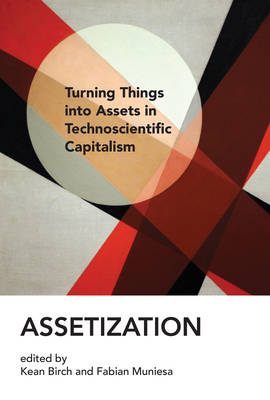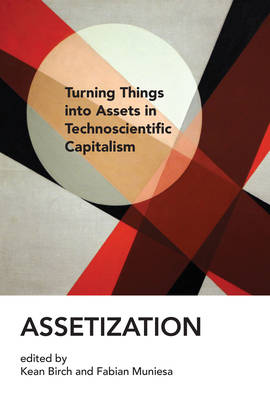
- Retrait gratuit dans votre magasin Club
- 7.000.000 titres dans notre catalogue
- Payer en toute sécurité
- Toujours un magasin près de chez vous
- Retrait gratuit dans votre magasin Club
- 7.000.0000 titres dans notre catalogue
- Payer en toute sécurité
- Toujours un magasin près de chez vous
Description
In this book, scholars from a range of disciplines argue that the asset--meaning anything that can be controlled, traded, and capitalized as a revenue stream--has become the primary basis of technoscientific capitalism. An asset can be an object or an experience, a sum of money or a life form, a patent or a bodily function. A process of assetization prevails, imposing investment and return as the key rationale, and overtaking commodification and its speculative logic. Although assets can be bought and sold, the point is to get a durable economic rent from them rather than make a killing on the market. Assetization examines how assets are constructed and how a variety of things can be turned into assets, analyzing the interests, activities, skills, organizations, and relations entangled in this process.
The contributors consider the assetization of knowledge, including patents, personal data, and biomedical innovation; of infrastructure, including railways and energy; of nature, including mineral deposits, agricultural seeds, and "natural capital"; and of publics, including such public goods as higher education and "monetizable social ills." Taken together, the chapters show the usefulness of assetization as an analytical tool and as an element in the critique of capitalism.
Contributors
Thomas Beauvisage, Kean Birch, Veit Braun, Natalia Buier, Béatrice Cointe, Paul Robert Gilbert, Hyo Yoon Kang, Les Levidow, Kevin Mellet, Sveta Milyaeva, Fabian Muniesa, Alain Nadaï, Daniel Neyland, Victor Roy, James W. Williams
Spécifications
Parties prenantes
- Auteur(s) :
- Editeur:
Contenu
- Nombre de pages :
- 344
- Langue:
- Anglais
- Collection :
Caractéristiques
- EAN:
- 9780262539173
- Date de parution :
- 14-07-20
- Format:
- Livre broché
- Format numérique:
- Trade paperback (VS)
- Dimensions :
- 147 mm x 229 mm
- Poids :
- 598 g

Les avis
Nous publions uniquement les avis qui respectent les conditions requises. Consultez nos conditions pour les avis.






